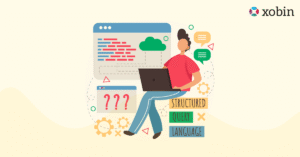Hiring the right talent goes beyond skills and experience. Cultural fit plays a crucial role in ensuring long-term engagement, employee satisfaction, and team cohesion. Using cultural assessment tools allows organizations to objectively measure alignment between candidates’ values, work styles, and company culture.
Table of Contents
In this blog, we’ll explore the top cultural fit assessment tools for recruitment, helping HRs, recruiters, and talent acquisition teams make smarter hiring decisions.
What Is a Cultural Assessment Tool?
A cultural assessment tool is a platform or software solution designed to evaluate how well a candidate’s personality, values, and work preferences align with a company’s culture. These tools go beyond traditional resumes and interviews to provide insights that predict long-term employee satisfaction and engagement.
Cultural fit assessments reduce employee turnover, increase job satisfaction, and create cohesive teams. They allow recruiters to identify candidates who not only can do the job but will thrive in the organizational environment.
Key Benefits:
- Better Hiring Decisions: Identify candidates who will thrive in your work environment.
- Reduced Turnover: Employees aligned with your culture are more likely to stay.
- Stronger Team Dynamics: Promote collaboration and minimize conflicts.
- Objective Evaluation: Standardized assessments reduce bias in recruitment.
How to Choose the Right Cultural Fit Assessment Platform
Identify Your Organizational Needs
Determine the values, behaviors, and traits that are essential for your company’s success. Consider your team size, industry, and recruitment volume to select a cultural fit assessment platform that fits your requirements.
Evaluate Features and Flexibility
Look for software to assess cultural fit that offers customizable assessments, analytics dashboards, and integrations with your existing recruitment systems. Flexibility ensures that the tool adapts to your evolving hiring strategies.
Prioritize Candidate Experience
A user-friendly interface, clear instructions, and actionable feedback are crucial. Candidates who have a positive assessment experience reflect well on your employer brand.
Compare Pricing and ROI
Assess the cost against the value delivered, including reduced turnover, improved retention, and better cultural alignment. Choose a cultural assessment tool that balances affordability with functionality.
Best AI-Driven Platforms for Assessing Cultural Fit
1. Xobin
Xobin is an AI-powered skill assessment platform that helps recruiters evaluate both technical abilities and cultural alignment. It offers data-driven insights to ensure candidates match an organization’s values, behavior, and work environment. With customizable assessments and behavioral analytics, Xobin empowers HR teams to make confident, bias-free hiring decisions that strengthen company culture and long-term employee engagement.
Features of Xobin
- AI-driven psychometric tests to measure personality and values
- Cultural alignment assessments tailored to company values
- Behavioral and situational judgment tests
- Customizable test library for culture-based scenarios
- AI video interviews to analyze communication tone and attitude
- Team fit analytics for evaluating collaboration style
- Bias-free evaluation using structured scoring
- Real-time reporting and cultural insights dashboard
- Seamless ATS integration for end-to-end hiring
- AI-backed insights ensure accurate culture matching.
- 100% customizable assessments for any role in any industry.
- Behavioral pattern mapping unique to each role.
- Seamless automation from test creation to hiring decision.
- Integrations are currently expanding with more HR platforms.
2. Harver
Harver is a platform designed to streamline high-volume hiring through predictive assessments and automation. It uses scientifically validated tests to evaluate candidate fit, offers analytics and candidate experience enhancements, and supports roles across industries such as retail, BPO and tech. From screening to scheduling, it seeks to align recruitment efficiency with data-driven decision-making.
Features of Harver
- Delivers predictive assessments that measure potential, not just past performance.
- Offers a candidate-friendly interface that keeps applicants engaged throughout the assessment.
- Uses automation to advance candidates based on fit and readiness criteria.
- Provides a business analytics dashboard with insights on hiring stages and candidate profiles.
- Includes situational judgment and personality-based assessments to assess behavioral alignment.
- Features multi-industry templates for sectors like retail, telecom, and contact centers to ensure cultural fit.
- Speeds up hiring by automating large-scale applicant evaluations.
- Uses data and analytics for objective culture-fit decisions instead of gut instincts.
- Improves candidate experience, boosting employer branding and engagement.
- Supports volume hiring through flexible, industry-specific templates.
- Offers limited customization for culture-add assessments.
- Lacks advanced proctoring tools and may have a smaller role-specific question library.
3. HighMatch
HighMatch is an assessment platform that aligns candidate traits with your organization’s unique culture, role requirements and competencies. It delivers a tailored evaluation process backed by I/O psychology, aiming to provide insights into candidates’ behaviour fit and performance potential. The solution supports screening, assessment and interviewing phases, helping organizations make data-informed hiring decisions.
Features of HighMatch
- Build customized assessments aligned with your company culture, role needs, and core competencies.
- Uses adaptive AI and analytics to refine assessments based on performance and evolving goals.
- Screens and filters candidates early by matching their traits with organizational values.
- Delivers detailed reports on personality, cognitive, and behavioral fit for better decisions.
- Integrates seamlessly across the talent journey from pre-hire screening to post-hire development.
- Scientifically validated through I/O psychology to ensure culture fit and reduce early turnover.
- Enables highly tailored assessments specific to your organization’s culture and goals.
- Backed by robust data and analytics grounded in I/O psychology research.
- Covers the complete talent lifecycle, from screening to development.
- Flexible for all roles and industries, including hourly, managerial and executive levels.
- Offers limited pre-built question libraries.
- Lacks advanced anti-cheating proctoring for strict test monitoring.
4. Softfactors
Softfactors is a cloud-based recruiting suite that blends applicant tracking, pre-screening, and assessments to measure both hard and soft skills. It automatically matches candidate profiles with job requirements using an algorithmic fit score. The platform supports customized job-specific layouts and candidate feedback reports.
Key Features of Softfactors
- Tests up to 25 soft factors, adapting to different job roles.
- Uses a matching algorithm to compare hard and soft skills with job requirements.
Displays a visual candidate ranking for clear hiring decisions. - Allows custom branding and job-specific layouts to reflect company culture.
- Instantly provides feedback reports and a personality overview after each application.
- Integrates smoothly with existing ATS or LMS systems to streamline hiring.
- Excellent for evaluating soft skills and cultural fit.
- Custom job-profile matching helps recruiters refine fit criteria.
- Enhances candidate experience and promotes employer branding.
- Visual rankings simplify hiring decisions.
- Limited AI-driven psychometric assessments for specific roles.
- Lacks advanced anti-cheating or proctoring tools.
5. Weirdly
Weirdly is a recruitment platform designed to support high‐volume hiring with culture and values assessments. It enables companies to screen candidates through engaging quizzes and workflows tailored to reflect organizational norms, while also offering scheduling and community-building features.
Features of Weirdly
- Offers a branded values quiz to assess how well candidates align with company culture.
- Uses a soft skills question bank validated on 500K+ candidates for reliable insights.
- Integrates with top ATS platforms for a smooth and connected hiring workflow.
- Provides real-time dashboards for instant candidate and recruiter feedback.
- Automates communication and scheduling based on assessment outcomes.
- Ensures accessibility and fairness with readability checks and continuous test validation.
- Delivers an engaging candidate experience, boosting employer branding.
- Excels at early screening for value alignment, ideal for high-volume hiring.
- Integrates seamlessly with ATS tools, improving recruiter efficiency.
- Supports custom branding and mobile-friendly assessments to enhance engagement.
- Lacks comprehensive role-specific psychometric and technical tests.
- Offers limited proctoring and anti-cheating features for secure assessments.
6. AssessFirst
AssessFirst is a behavioural-science based assessment tool that evaluates a candidate’s personality, motivations and cognitive ability to gauge how well they might fit into a company’s culture and role. Its platform combines psychometric science with AI-driven predictive models to help recruiters see beyond resumes and aim for better long-term alignment between individuals and organizations.
Features of AssessFirst
- Uses the SWIPE test to measure personality traits through quick, image-based questions in just 5 minutes.
- Uses the DRIVE questionnaire to assess personal motivators and values for better cultural alignment.
- Uses the BRAIN test to evaluate reasoning and learning abilities, adding depth to candidate fit analysis.
- Builds predictive models that link candidate profiles with job roles and company culture.
- Provides team-fit algorithms to predict how candidates will blend with existing team dynamics.
- Integrates seamlessly with ATS systems and offers analytics dashboards to track culture-fit metrics with hiring data.
- Offers an intuitive interface for both recruiters and candidates.
- Provides scientifically validated psychometric and motivational tests for objective hiring data.
- Encourages decisions based on soft skills and cultural fit, not just technical ability.
- Ensures smooth integration with other hiring tools for efficient workflows.
- Some assessment customization options are limited.
- Offers a smaller range of testing formats like skills or simulations.
7. The Predictive Index
The Predictive Index is a behavioral assessment platform designed to help organizations evaluate how candidates’ drives and work styles fit with the company culture. It uses a science-based model of dominant behavioral traits and aims to help recruiters align hires with role and culture.
Features of Predictive Index
- Measures four main behavioral drives (dominance, extraversion, patience, and formality).
- Offers a behavioral report with an optional cognitive test to assess job fit and learning potential.
- Provides a Fit Rating showing how well a candidate’s profile matches the job’s behavioral needs.
- Supports Team Types and Team Maps to visualize each member’s impact on team culture and dynamics.
- Allows companies to set their own culture and behavioral benchmarks for hiring.
- Generates detailed dashboards and reports combining behavioral and cognitive insights.
- Takes only around 10 minutes and is simple for candidates to complete.
- Creates a shared language for hiring teams to discuss behavior and job fit.
- Combines behavioral and cognitive data for a complete talent view.
- Offers an unlimited assessment model suitable for growing organizations.
- Lacks strong candidate experience customization and multilingual options.
- Focuses mainly on behavior and cognition, overlooking deeper cultural values.
- User interface and modular flexibility feel less personalized.
8. CultureMonkey
CultureMonkey is a cloud-based employee engagement and culture-fit platform that uses multilingual, omni-channel surveys and real-time analytics to help organizations gauge how well candidates and employees align with their values and working environment. It enables anonymized feedback, role-based dashboards and actionable insights, supporting global teams in listening to their workforce and making culture-driven decisions.
Features of CultureMonkey
- Offers multilingual and omni-channel surveys, letting employees or candidates respond in their preferred language and platform.
- Provides a library of ready-to-use and customizable survey templates focused on culture, engagement, and organization-specific factors.
- Enables anonymous feedback to encourage honest responses and reduce social desirability bias.
- Displays real-time dashboards and analytics to track cultural trends and detect misalignments quickly.
- Integrates with HR systems and team tools to connect culture insights with broader talent operations.
- Includes action planning and feedback loops that turn survey results into concrete cultural improvement initiatives.
- Easy to deploy multilingual surveys that boost global participation.
- Powerful analytics and dashboards help culture teams spot alignment gaps fast.
- Anonymous feedback support enhances honesty and trust in responses.
- Seamless HR tool integration ensures smoother workflows and data connection.
- Limited focus on pre-hire cultural fit assessments in structured candidate testing.
- Lacks advanced features like proctoring or automatic shortlisting during candidate evaluations.
Build a Team that Truly Belongs — Start Assessing Cultural Fit Today!
Cultural fit is more than just a hiring metric; it’s the foundation of a thriving workplace. The right AI tool for assessing cultural fit helps you identify candidates who align with your company’s values, enhance collaboration, and stay for the long run. Don’t settle for good hires when you can build great teams.
Discover how Xobin’s AI-powered cultural fit assessments can help you hire people who not only perform but truly belong. Book a personalized demo and get started with Xobin today!






